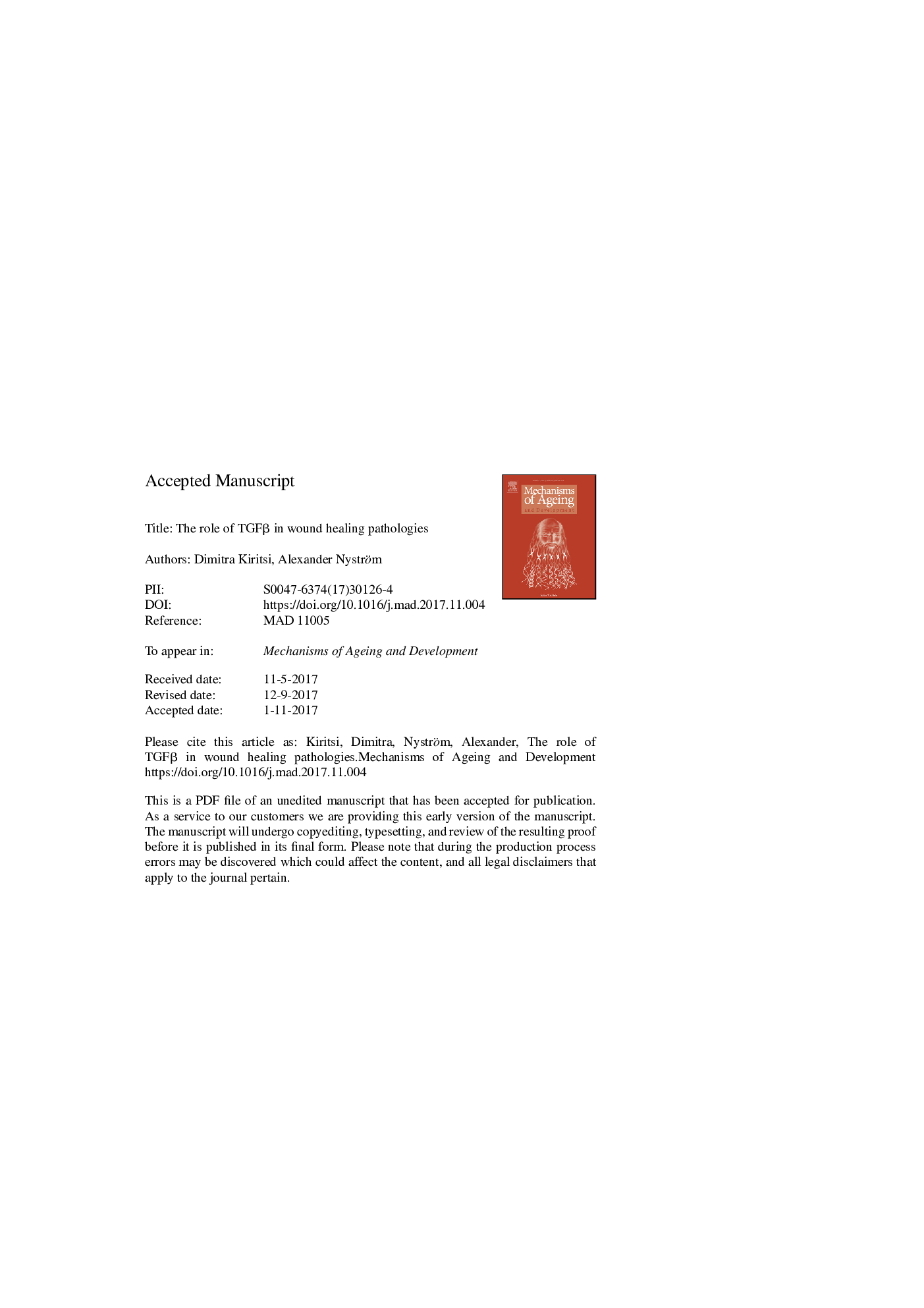| Article ID | Journal | Published Year | Pages | File Type |
|---|---|---|---|---|
| 8284685 | Mechanisms of Ageing and Development | 2018 | 22 Pages |
Abstract
Wound healing is one of the most complex processes in multicellular organisms, involving numerous intra- and intercellular signalling pathways in various cell types. It involves extensive communication between the cellular constituents of diverse skin compartments and its extracellular matrix. Miscommunication during healing may have two distinct damaging consequences: the development of a chronic wound or the formation of a hypertrophic scar/keloid. Chronic wounds are defined as barrier defects that have not proceeded through orderly and timely reparation to regain structural and functional integrity. Several growth factors are involved in wound healing, of which transforming growth factor beta (TGFβ) is of particular importance for all phases of this procedure. It exerts pleiotropic effects on wound healing by regulating cell proliferation, differentiation, extracellular matrix production, and modulating the immune response. In this review we are presenting the role of TGFβ in physiological and pathological wound healing. We show that the context-dependent nature of the TGFβ signaling pathways on wound healing is the biggest challenge in order to gain a therapeutically applicable comprehensive knowledge of their specific involvement in chronic wounds.
Keywords
Related Topics
Life Sciences
Biochemistry, Genetics and Molecular Biology
Ageing
Authors
Dimitra Kiritsi, Alexander Nyström,
